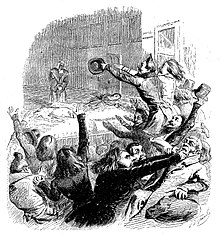
Hernán Cortés de Monroy y Pizarro Altamirano, 1st Marquess of the Valley of Oaxaca was a Spanish conquistador who led an expedition that caused the fall of the Aztec Empire and brought large portions of what is now mainland Mexico under the rule of the king of Castile in the early 16th century. Cortés was part of the generation of Spanish explorers and conquistadors who began the first phase of the Spanish colonization of the Americas.

Ernani is an operatic dramma lirico in four acts by Giuseppe Verdi to an Italian libretto by Francesco Maria Piave, based on the 1830 play Hernani by Victor Hugo.

Victor-Marie Hugo, sometimes nicknamed the Ocean Man, was a French Romantic writer and politician. During a literary career that spanned more than sixty years, he wrote in a variety of genres and forms.
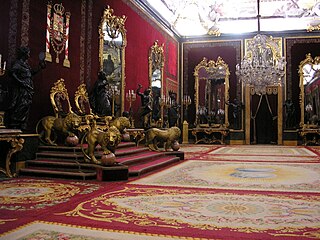
Succession to the Spanish throne follows male-preference cognatic primogeniture. A dynast who marries against the express prohibition of the monarch and the Cortes Generales, the legislative chamber of Spain, is excluded from the succession. Upon proclamation by the Cortes Generales, the monarch is to take an oath to discharge his duties faithfully, to abide by the Constitution and the law and ensure they are abided by, and to respect the rights of the citizens and of the Autonomous Communities.

Infanta Margarita of Spain, Duchess of Soria, 2nd Duchess of Hernani, Grandee of Spain, is the younger sister of King Juan Carlos and aunt of the reigning King Felipe VI of Spain.
The Spanish royal family, a branch of the House of Bourbon, is headed by King Felipe VI, and currently consists of Queen Letizia, their children Leonor, Princess of Asturias and Infanta Sofía of Spain, and Felipe's parents, King Juan Carlos I and Queen Sofía. The royal family lives at the Zarzuela Palace in Madrid, although their official residence is the Royal Palace of Madrid. The membership of the royal family is defined by royal decree and consists of: the King of Spain, the monarch's spouse, the monarch's parents, his children, and the heir to the Spanish throne.

Mounet-Sully, a French actor, was born at Bergerac. His birth name was Jean-Sully Mounet: "Mounet-Sully" was a stage name.

Le Cid is a five-act French tragicomedy written by Pierre Corneille, first performed in December 1636 at the Théâtre du Marais in Paris and published the same year. It is based on Guillén de Castro's play Las Mocedades del Cid. Castro's play in turn is based on the legend of El Cid.

Don César de Bazan is an opéra comique in four acts by Jules Massenet to a French libretto by Adolphe d'Ennery, Philippe-François Pinel "Dumanoir" and Jules Chantepie, based on the play by d'Ennery and Dumanoir, which was first performed at Théâtre de la Porte Saint-Martin in 1844. This in turn drew on the popular character of Don César de Bazan, in the 1838 drama Ruy Blas by Victor Hugo, though it has little connection with the plot of Hugo's drama. Massenet's opera was first performed at the Opéra-Comique in Paris on 30 November 1872.

Ruy Blas is a tragic drama by Victor Hugo. It was the first play presented at the Théâtre de la Renaissance and opened on November 8, 1838. Though considered by many to be Hugo’s best drama, the play was initially met with only average success.
Rain of Gold is Victor Villaseñor's 1991 book, a national bestseller, which tells the story of his own parents who were undocumented immigrants from Mexico. Two families escaping from the Mexican Revolution to the relative safety of the United States have parallel experiences centered on their mothers' strength. It is available in Spanish as Lluvia de Oro.
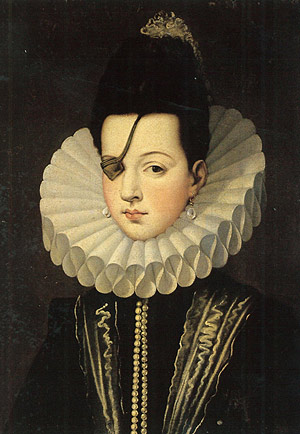
Ana de Mendoza de la Cerda y de Silva Cifuentes, Princess of Eboli, Duchess of Pastrana, was a Spanish aristocrat, suo jure 2nd Princess of Mélito, 2nd Duchess of Francavilla and 3rd Countess of Aliano.
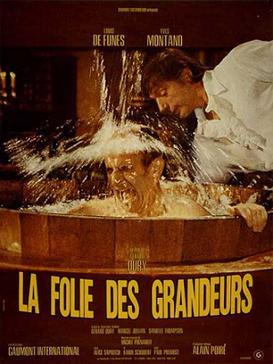
Delusions of Grandeur is a 1971 French comedy film directed by Gérard Oury. It is a very liberal comedic adaptation of the play Ruy Blas by Victor Hugo.
The House of Silva is an aristocratic family of Spanish and Portuguese origin.
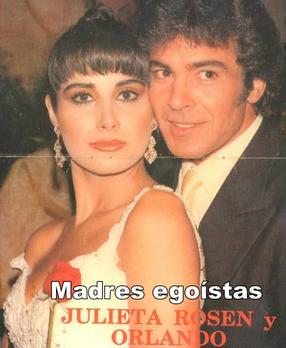
Madres egoístas is a Mexican telenovela produced by Juan Osorio for Televisa in 1991.
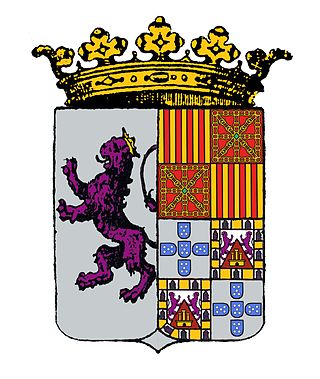
The House (Casa) de Silva Fernández de Híjar Portugal had its origin from the marriage ties of the house de Silva, with the house of Fernández de Ixar [from doña Isabel (1620-1700) descendant of don Pedro Fernández de Ixar (1245-1299), natural child of the king don Jaime I d'Aragon called "The Conqueror" and of doña Bereguela Fernández, granddaughter of don Alfonso IX de Leon, by matrilineal descent] and the House de Portugal [from doña Ana (1570-1629) (descendant from doña Isabel de Portugal natural child of don Fernando I of Borgogna king of Portugal]. Marriage ties which created one of the most ancient, important, and richest families of Spain and Portugal. A family which has given a great number of Grandes of Spain, viceroys, famous military figures, politicians, statesmen, clergymen, saints, scholars, artists, architects; to the kingdom first and to the Spanish Empire later, to nowadays.

Shrew's Nest is a 2014 horror thriller film directed by Juanfer Andrés and Esteban Roel, and starring Macarena Gómez, Nadia de Santiago, Hugo Silva and Luis Tosar. It earned three nominations to the 29th Goya Awards, including Gómez for Best Actress.

Hasta que la plata nos separe is a Colombian telenovela created and written by Fernando Gaitán, starring Victor Hugo Cabrera and Marcela Carvajal. It is produced and broadcast by RCN Televisión from May 22, 2006 to October 11, 2007.

The Cook of Castamar is a Spanish period drama television series adapting the novel of the same name by Fernando J. Muñez which stars Michelle Jenner and Roberto Enríquez. Set in early 18th-century Madrid, the plot follows the love story between an agoraphobic cook and a widowed nobleman. Produced by Buendía Estudios, it originally aired on Atresplayer Premium from February to May 2021.

The Battle of Hernani is the name given to the controversy and heckling that surrounded the 1830 performances of Victor Hugo's Romantic drama Hernani.
